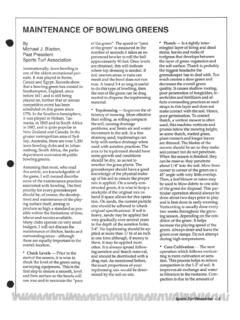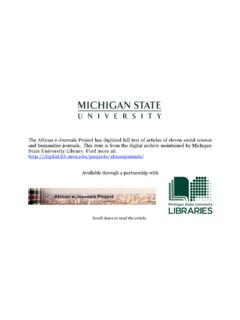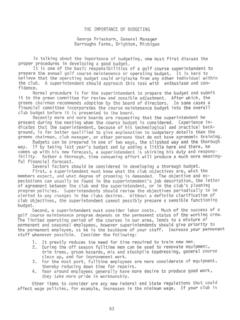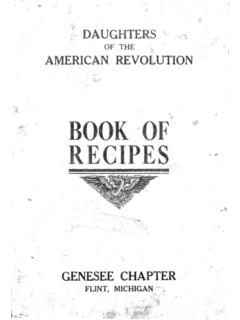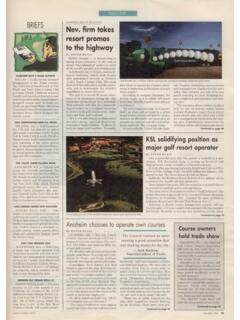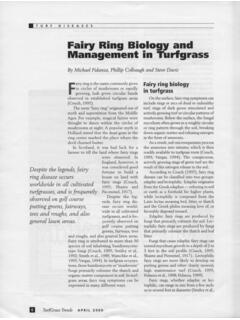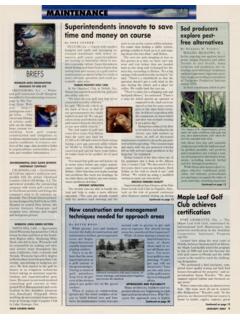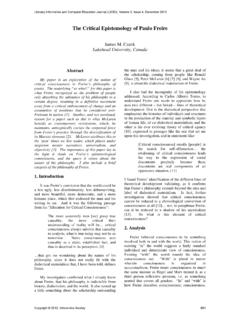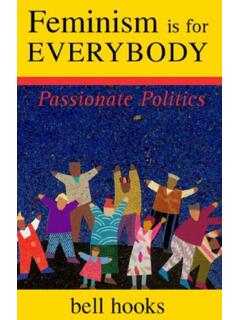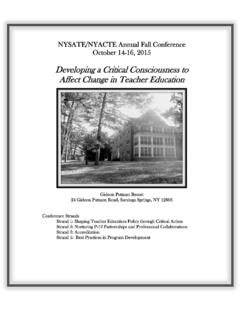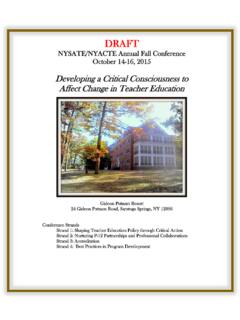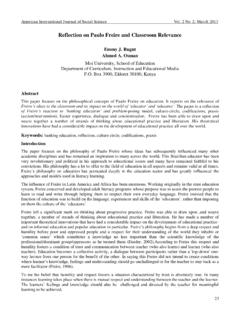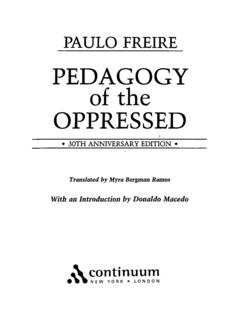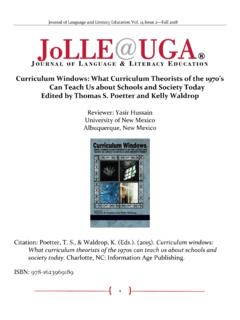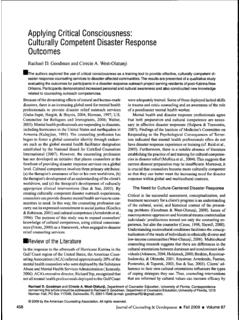Transcription of The African e-Journals Project has digitized full text of ...
1 The African e-Journals Project has digitized full text of articles of eleven social science and humanities journals. This item is from the digital archive maintained by Michigan State University Library. Find more at: Available through a partnership with Scroll down to read the article. The Relevance of Paulo Freire'sContributions to education andDevelopment in Present Day AfricaBy Juma E. NyirendaAbstractPaulo Freire is a Brazilian educator and philosopher who is bestknown for his literacy method based on conscientization anddialogue. He has been called "the greatest living educator, amaster and a teacher" (Taylor, 1993, p. 1). This article identifiesand examines Freire's educational ideas which offer mostimportant contribution to understanding educational practicesand discusses their relevance to education and development incontemporary Africa in terms of the extent to which they are stillof value.
2 These ideas include Freire's theory of conscientizationand dialogue, liberating education , a criticism of bankingeducation, and a criticism of the concept of extension as culturalinvasion. The examination of these ideas shows that, given theexisting realities in African societies today, particularly in therural areas, Freire's ideas now appear more relevant to educa-tion and development in Africa than ever Juma Nyirenda teaches communication at the Department ofAdult education , University of Botswana, Gaborone, Coherence des Contributions dePaulo Freire a V education et'auDeveloppement en AfriqueContemporainePar Juma E. NyirendaResumePaulo Freire est educateur et philosophe brezilien, qui est bienconnu dans le domaine de la litterature, basee sur lasensibilisation et le dialogue.
3 On l'a baptise Teducateurcontemporain le plus grand; maitre et professeur" (Taylor, 1993,p. 1). Cet expose cerne, pour mieux analyser, les idees de cemonsieur sur l' education . Cela permet de voir rimportance de sacontribution et de comprendre les pratiques educationnelles,ainsi que leur coherence au developpement en Afriquecontemporaine. Ces idees comprennent la theorie de Freire surla sensibilisation et le dialogue, runiversalisation de l' education ,une critique de l' education bancaire et du concept de l'expansioncomme une agression culturelle. L'analyse critique de ces ideesmontxe qu'etant donne les realites de la societe africainecontemporaine, notamment dans les regions rurales, les conseilsde Freire nunc sont encore plus coherents, en ce qui concernel' education et le developpement approprie en Juma Nyirenda enseigne la Communication au Departementde L'Alphabetisation des Adultes, Universite de Botswana,Gaborone, Regius Neves Freire was born on September 19th, 1921 inRecife in Brazil.
4 He grew up in a Christian family as a Catholicunder difficult conditions. He is best known for his work in andinfluence on literacy campaigns and programmes first in Brazil,then in Chile and later in other countries including GuineaBissau, Nicaragua and Tanzania (Allman, 1994; Gadotti, 1994).Freire was one of the founders of the Cultural ExtensionService of the University of Recife. And he was its first that time, Freire was also the Coordinator of the AdultEducation Project of the Movement of Popular Culture in 's experiences in this Project led to the maturing of his earlyeducational ideas. He was concerned about the large numbersof illiterate people.
5 He considered them obstacles to the develop-ment of Brazil and the creation of a democratic mentality (Freire,1974; Bee, 1990). Freire ( 1974) stated that, "in 1964, approxi-mately four million school-age children lacked schools; therewere sixteen million illiterates of fourteen years and older" (p. 41). Therefore, Freire sought to provide these illiterate people withan alternative education which would take place outside atraditional school ( Bee, 1990 ). And through the Adult Educa-tion Project of the Movement of Popular Culture Freire and hiscolleagues set up:.. a new Institution of popular culture , a "culture circle", since amongus, a school was a traditionally passive concept.
6 Instead of a teacher,we had a coordinator; Instead of lectures, dialogue; instead of pupils,group participants; instead of alienating syllabi, compact programs thatwere "broken down" and codified into learning units (Freire 1974, p. 42).These culture circles were established in the villages andslums of Recife and were deliberately designed to be differentfrom traditional schools. As mentioned in the above quotation,culture circles had coordinators in place of teachers, learningwas done through an exchange of ideas between the coordinatorand group participants and dialogue replaced the traditionallecture in which information and skills were handed down to thelearner.
7 Culture circles encouraged active participation and thecontent to be studied was related to the interests and reality ofthe group participants. These culture circles attempted to clarifysituations through critical discussion or debate and to seekaction as a result of that clarification. The topics for discussionwere offered by the groups themselves. They included topicssuch as nationalism, profit remittances abroad, the politicalrevolution in Brazil, illiteracy, the vote for the illiterates, anddemocracy. The topics were schematised or codified and pre-sented to the groups with visual aids like pictures or slides andthen followed by critical discussion.
8 Freire reports that they wereamazed by the success of this form of participatory , Freire was convinced that learning to read foradults should be a process in which content and materials hadto have a bearing on their daily reality; and that a study of theirconcrete social reality should lead to critical awareness of thepossibilities for action and change (Freire, 1972 and 1974; Freireand Shor, 1987; Bee, 1990)Freire used the experience in the culture circles to develop amethod of teaching literacy to adults based on his theory ofconscientization. He conducted experiments under the auspicesof the Service of Culture Extension of the University of first experiments with the method began in 1962 involving300 rural farm workers who were taught how to read and writein forty-five days.
9 In 1964, 20,000 culture circles were plannedto be set up. However, the military coup in that year interruptedFreire's work. He was jailed for seventy days and later went intoexile in Chile (Sanders, 1968).Freire presented his literacy method in a more detailed formin his 1967 book entitled education as a Practice of Freedom. Theuses of the method can be found in his book entitledConscientization. The basis of Freire's method is that educationis seen as a part of the process of the revolutionary transforma-tion of society. The method is linked to a total change in context of Freire's ideas are the conditions or circum-stances of the Northeast of Brazil at the beginning of the 1960swhere half of the population lived in the "culture of silence".
10 Theywere illiterate and "apathetic, down-trodden, and fatalistic intheir attitudes" (Bee, 1990, p. 40). Freire hoped that his literacymethod would make the illiterate people lose their fatalistic,apathetic and naive view of their reality as given and wanted to replace this view with critical awareness so thatilliterate people could accept their role as subjects in it. A criticalperception of reality would make illiterate people know whatneeds changing. Hence it was important to raise a criticalconsciousness of the illiterate can be seen, therefore, that one of the important contributionsof Freire to education and development is his theory ofconscientization.


